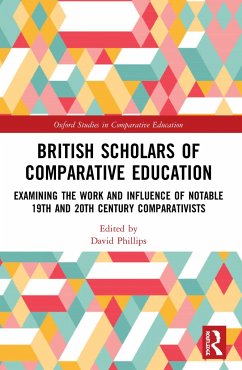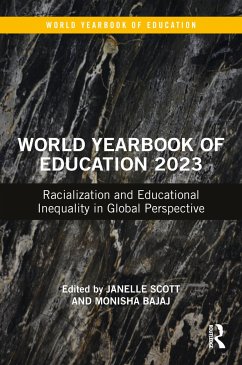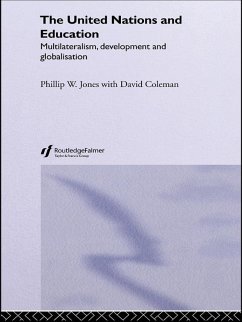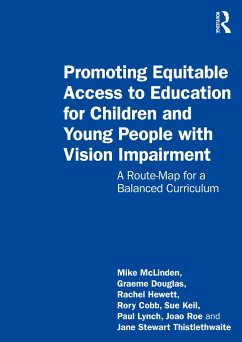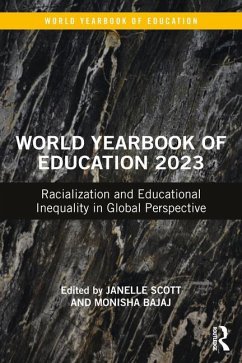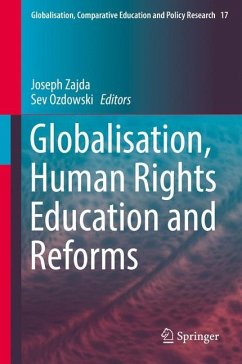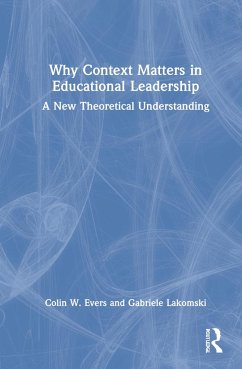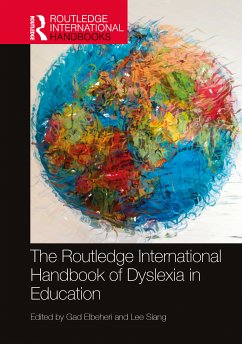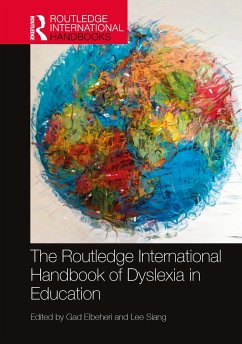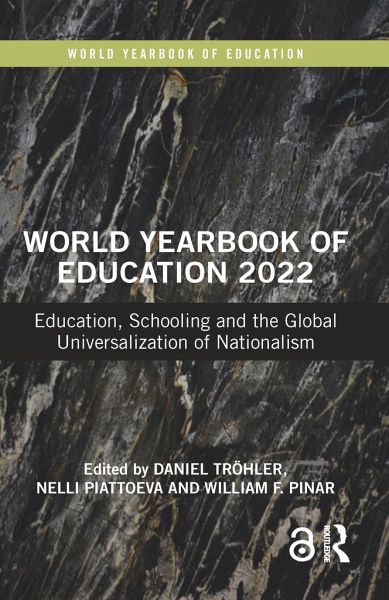
World Yearbook of Education 2022
Education, Schooling and the Global Universalization of Nationalism
Herausgegeben: Tröhler, Daniel; Piattoeva, Nelli; Pinar, William F.
Versandkostenfrei!
Versandfertig in 6-10 Tagen
38,99 €
inkl. MwSt.

PAYBACK Punkte
19 °P sammeln!
The latest volume in the World Yearbook of Education Series explores the relationship between education and the globally prevalent principle of nationalism. This book identifies the diverse ways in which educational policies, discourses, curricula and pedagogy embed and promote the concept of "the nation" both historically and in the age of globalization. By challenging accounts owed to the discourse of "globalization" which conceal the presence of national epistemologies and interests in education, this book offers important insights into the role of education in making nationalism one of the...
The latest volume in the World Yearbook of Education Series explores the relationship between education and the globally prevalent principle of nationalism. This book identifies the diverse ways in which educational policies, discourses, curricula and pedagogy embed and promote the concept of "the nation" both historically and in the age of globalization. By challenging accounts owed to the discourse of "globalization" which conceal the presence of national epistemologies and interests in education, this book offers important insights into the role of education in making nationalism one of the most enduring and yet easily obscured forces of our time.
Organized into four sections, this book looks at the following main issues:
Historical (re)production of the nation considers how countries consider and reproduce their national identity and how this is built on their historyHegemonic aspirations and interventions examines how instruction technologies developed during the Cold War have been propagated and disseminated around the world, how the development of educational policy based on the human capital theory emerged, and analyzes the extent to which tech companies are intent on establishing an imperial order of learningImperial policies and resurgences of nationalisms explores how global or imperial policies have been indulged in different parts of the world and how new forms of nationalism have been emergingParadoxes, inconsistencies, and a self-reflection focuses on nations acting imperially as sites of domestic injustices, addresses unresolved paradoxes between the global and the national and includes a historically informed critical review of the World Yearbooks of Education
Bringing together the voices of researchers from around the globe, The World Yearbook of Education 2022 is ideal reading for anyone interested in learning how nationalism has affected the expansion of education systems and how its imperial aspirations are currently affecting education policy and practice.
Chapter 5 of this book is freely available as a downloadable Open Access PDF at http://www.taylorfrancis.com under a Creative Commons Attribution (CC-BY) 4.0 license.
Organized into four sections, this book looks at the following main issues:
Historical (re)production of the nation considers how countries consider and reproduce their national identity and how this is built on their historyHegemonic aspirations and interventions examines how instruction technologies developed during the Cold War have been propagated and disseminated around the world, how the development of educational policy based on the human capital theory emerged, and analyzes the extent to which tech companies are intent on establishing an imperial order of learningImperial policies and resurgences of nationalisms explores how global or imperial policies have been indulged in different parts of the world and how new forms of nationalism have been emergingParadoxes, inconsistencies, and a self-reflection focuses on nations acting imperially as sites of domestic injustices, addresses unresolved paradoxes between the global and the national and includes a historically informed critical review of the World Yearbooks of Education
Bringing together the voices of researchers from around the globe, The World Yearbook of Education 2022 is ideal reading for anyone interested in learning how nationalism has affected the expansion of education systems and how its imperial aspirations are currently affecting education policy and practice.
Chapter 5 of this book is freely available as a downloadable Open Access PDF at http://www.taylorfrancis.com under a Creative Commons Attribution (CC-BY) 4.0 license.





